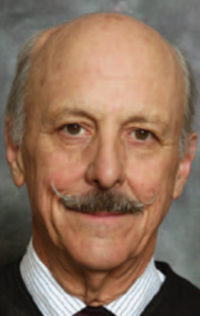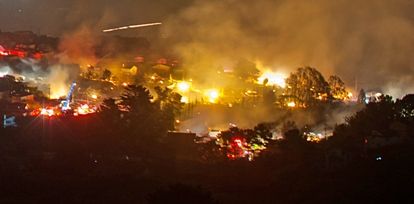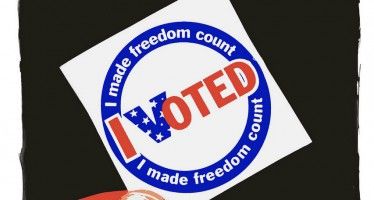PG&E Chapter 11 moves ahead – despite criticism over bonuses and board
Pacific Gas & Electric’s decision to file for Chapter 11 bankruptcy in January – coming after three years of deadly, destructive wildfires in its service areas and never-ending concerns about its safety record – hasn’t stopped the negative headlines.

The giant investor-owned utility’s proposal revealed last month to provide at least $235 million in bonuses to its employees drew incredulity both from attorneys for wildfire victims suing PG&E and from those closely monitoring its Chapter 11 bankruptcy. A decision on the request could come Tuesday from U.S. Bankruptcy Judge Dennis Montali.
Gov. Gavin Newsom also again made clear that he would not be nearly as accommodating as predecessor Jerry Brown, who said little about the utility even as its scandals mounted in recent years. Newsom took strong exception to a proposal by PG&E to fill some vacancies on its board of directors with hedge-fund executives, which goes against his demand that the board focus on safety, not protecting PG&E’s bottom line. PG&E proceeded with the plan last week despite the governor’s criticisms.
Bankruptcy judge: Will probation be revoked?
But this criticism didn’t keep the utility from scoring a court victory that’s crucial to its plan of using Chapter 11 proceedings to reorganize its assets, adequately compensate creditors, then emerge at some future date with relative fiscal and management stability. That’s what happened in 2004 after PG&E went through three years of Chapter 11 proceedings triggered by its inability to pay $9 billion in debt stemming from the winter 2000-01 state energy crisis, in which utilities were forced to pay far more on the spot energy market than they were allowed to charge customers because of a flawed 1996 energy deregulation law.
Montali recently decided to allow PG&E to access all the $5.5 billion in financing it had lined up from major banks to give it liquidity as it pursued bankruptcy. The decision normalized the Chapter 11 process – crucial to PG&E’s stock price and to its hope for a return to status-quo operations.
As recently as a month ago, this seemed far from a sure thing.

At a March 13 hearing on PG&E’s request to gain full use of the financing it had lined up in January, the bankruptcy judge noted that the utility also faced the possibility of severe sanction from another judge in San Francisco’s federal courthouse. U.S. District Judge William Alsup is serving as PG&E’s de facto probation officer, overseeing the utility’s actions after its 2016 conviction on six federal felonies for its lax oversight and stonewalling of investigators after a 2010 gas pipeline explosion (pictured) in San Bruno killed eight people. PG&E has admitted to new problems with gas-line safety inspections – including records being falsified – since the 2010 disaster.
Montali raised the prospect that Alsup would appoint a trustee to run the utility. The observation raised the hopes of lawyers for wildfire victims, who believe that the circumstances of PG&E’s recent behavior require that it not get the usual Chapter 11 treatment. One key argument: Would JP Morgan Chase, Bank of America, Barclays and Citigroup ever have agreed to the loans had the banks known PG&E would lose effective control of its management?
Banks agree to go slow if trustee takes over utility
But after meeting with lawyers for those suing PG&E for a long variety of claims, the bankruptcy judge concluded that for now, PG&E’s Chapter 11 proceedings could unfold on the conventional track.
According to the Chronicle, a key to Montali’s decision was the reassurance offered by lenders that the appointment of a trustee by a federal judge would not trigger the banks to declare a default within seven days, as they could have done under the previous agreement. Instead, they will wait at least 21 days. This would give more breathing room for the loans to be renegotiated on terms more favorable to the banks.
PG&E stock closed at $19.37 a share on Friday. That’s down nearly 60 percent from November.
Chris Reed
Chris Reed is a regular contributor to Cal Watchdog. Reed is an editorial writer for U-T San Diego. Before joining the U-T in July 2005, he was the opinion-page columns editor and wrote the featured weekly Unspin column for The Orange County Register. Reed was on the national board of the Association of Opinion Page Editors from 2003-2005. From 2000 to 2005, Reed made more than 100 appearances as a featured news analyst on Los Angeles-area National Public Radio affiliate KPCC-FM. From 1990 to 1998, Reed was an editor, metro columnist and film critic at the Inland Valley Daily Bulletin in Ontario. Reed has a political science degree from the University of Hawaii (Hilo campus), where he edited the student newspaper, the Vulcan News, his senior year. He is on Twitter: @chrisreed99.
Related Articles
Initiative filing fee hike moves closer to approval
A proposal to make it more expensive to file a ballot measure in California is moving closer to becoming law, worrying both liberal
Cal recovery lags USA
JUNE 7, 2010 By JOHN SEILER California’s economy is recovering, but more slowly than that of the rest of America,
Illegals Could Enjoy In-State Tuition
MAY 16, 2011 By KATY GRIMES Should illegal immigrants be allowed to access California’s higher education system at the same



